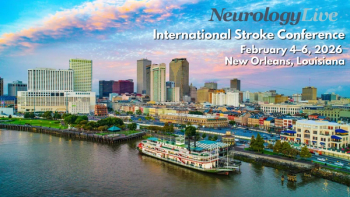
Novel Anticoagulants or Warfarin for AF?
The meta-analysis included four phase III clinical trials comparing novel anticoagulants to warfarin in patients with atrial fibrillation.
Novel anticoagulants are a better treatment option than warfarin for patients with atrial fibrillation, regardless of whether they have heart failure (HF), according to a meta-analysis published online in the Journal of American College of Cardiology: Heart Failure.1
“Our analysis shows that novel anticoagulants, compared with warfarin, significantly reduced the risks of stroke/systemic embolism, major and intracranial bleeding, and any bleeding in patients with HF, with no significant interactions with patients without HF. Thus, novel anticoagulants represent a valuable and preferable alternative to warfarin in this clinical setting,” wrote first author Gianluigi Savarese, MD, of the Federico II University (Naples, Italy) and the Karolinska Institute (Stockholm, Sweden), and colleagues.
Many patients with AF also have HF, which in and of itself may contribute to thromboembolic events and bleeding risk in AF. Moreover, HF may also contribute to reduced time in the therapeutic range (TTR) in AF patients on warfarin, further increasing thromboembolic and bleeding risk.
Novel anticoagulants have a more predictable therapeutic effect and more favorable hemorrhage risk profile than warfarin. A recent meta-analysis found that novel anticoagulants were associated with a significant reduction in stroke and systemic embolic events, as well as major and intracranial bleeding compared to warfarin in patients with HF and AF.2 However, that study did not include data from the ENGAGE AF-TIMI 48 trial, (which compared edoxaban to warfarin), and did not evaluate all-cause and cardiovascular mortality.
The meta-analysis included four phase III clinical trials that compared novel anticoagulants (apixaban, dabigatran, rivaroxaban, edoxaban) to warfarin in patients with AF. These trials were ARISTOTLE, RE-LY, ROCKET AF, and ENGAGE AF-TIMI 48. The meta-analysis included data from 55,011 patients, 48% (n=26,384) of which had HF, and 52% (n=28,627) of which did not (median age 70 years; 36% females; follow-up: 1.5 to 2.8 years). The study population was roughly split between those on novel anticoagulants (n= 27,518), and those on warfarin (n=27,493).
Sensitivity analyses included demographic characteristics of the study population, duration of follow-up, CV risk factors, New York Heart Association (NYHA) functional class, CHADS2 score, and concomitant medications.
Key Results:
• Novel anticoagulants significantly decreased stroke/systemic embolism and major, intracranial, and any bleeding compared to warfarin, in patients with and without HF (pinteraction > 0.05 for each)
• HF:
♦ Stroke/systemic embolism: Decreased by 14.4% (P=0.01)
♦ Major bleeding: Decreased by 23.2% (P<0.01)
♦ Intracranial bleeding: Decreased by 57.3% (P<0.01)
♦ Any bleeding: Decreased by 11.6% (P=0.02)
♦ CV death: No significant differences (P=0.11)
♦ All-cause death: No significant differences (P=0.08)
• Without HF:
♦ Stroke/systemic embolism: Decreased by 23.1% (P<0.01)
♦ Major bleeding: Decreased by 12.2% (P=0.01)
♦ Intracranial bleeding: Decreased by 49% (P<0.01)
♦ Any bleeding: Nonsignificantly decreased (P=0.054)
♦ CV death: Decreased by 19.2% (P=0.02)
♦All-cause death: Decreased by 14.7% (P=0.04)
The authors noted the very high methodological quality of the trials. They also noted that the RE-LY and ENGAGE AF-TIMI 48 trials included high and low doses of novel anticoagulants. Analyses that included the low doses of novel anticoagulants from these trials showed that novel anticoagulants were at least no worse than warfarin in decreasing the risk of stroke/systemic embolism, and were better than warfarin in decreasing the risk of bleeding. Sensitivity analyses also revealed similar results.
Limitations include differences in how the trials defined HF, and the inability to evaluate patient-level factors like TTR, left ventricular dysfunction, renal impairment, and other comorbidities. In addition, AF patients in clinical trials may be different than AF patients in the general population, and the results may not generalize to the latter.
Take-home Points
• Novel anticoagulants have a more predictable therapeutic effect and more favorable hemorrhage risk profile than warfarin, and may be preferable to warfarin patients with AF with and without HF.
• A meta-analysis that included data from four large clinical trials evaluating apixaban, dabigatran, rivaroxaban, and edoxaban found that novel anticoagulants significantly decreased stroke/systemic embolism and major, intracranial, and any bleeding compared to warfarin, in patients with and without HF
Daiichi-Sankyo provided support for the ENGAGE AF-TIMI 48 trial with a grant to the Brigham and Women's Hospital. Dr. Giugliano has received honoraria for CME lectures from Daiichi Sankyo and Merck; honoraria for consulting from the American College of Cardiology, Boehringer Ingelheim, Bristol Myers Squibb, Daiichi-Sankyo, Pfizer, and Portola. Dr. Filippatos is a member of the steering committee of trials sponsored by Bayer, Novartis, and Vifor. Dr. Lund has received speaker's or consulting honoraria from St Jude, Novartis, Bayer, ViforPharma, and HeartWare; and research grants to his institution from Boston Scientific, Medtronic and AstraZeneca
Disclosures:
1. Savarese G, et al.
2. Xiong Q, et al.
Newsletter
Keep your finger on the pulse of neurology—subscribe to NeurologyLive for expert interviews, new data, and breakthrough treatment updates.








